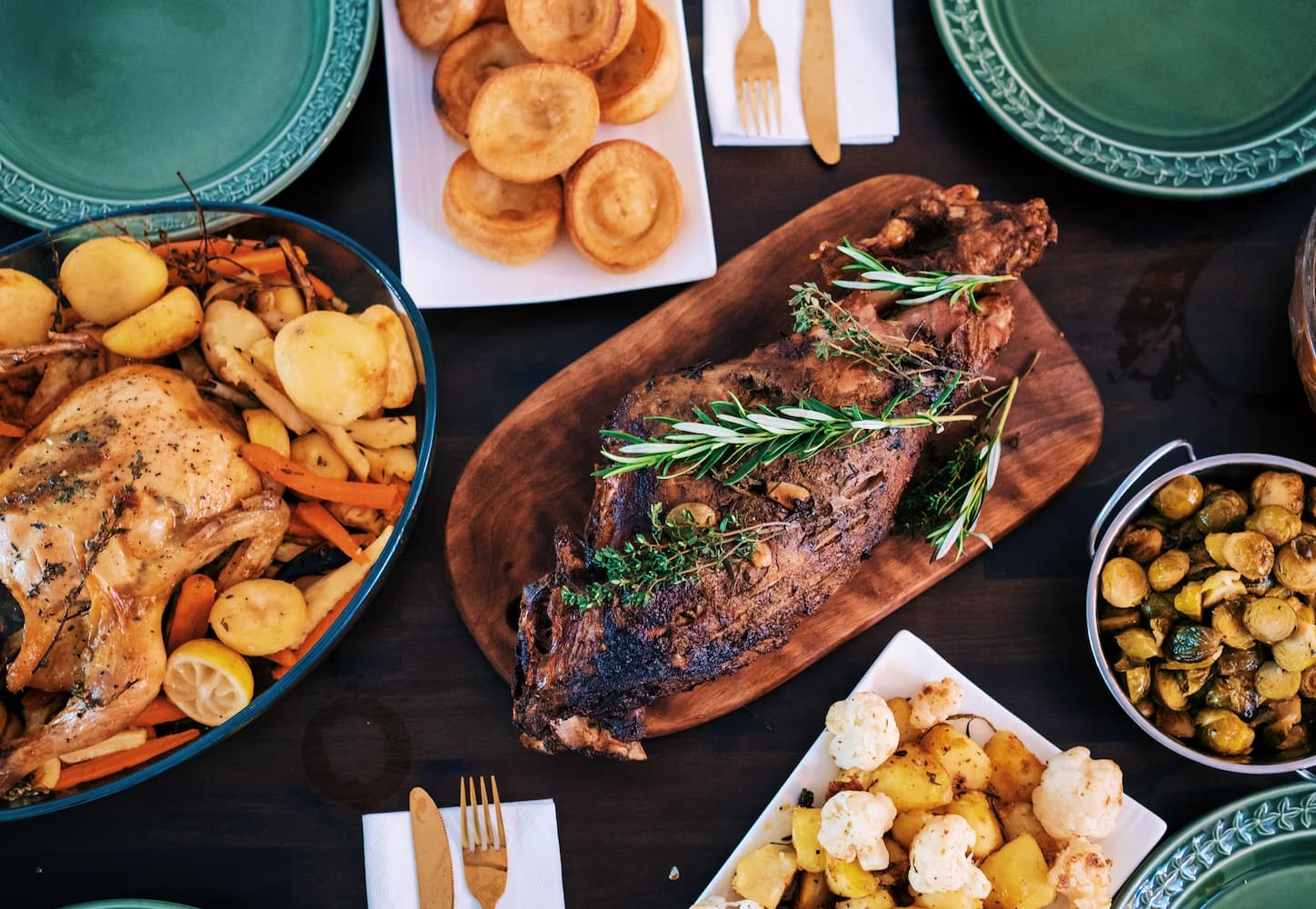
The holidays are a magical time of year when many people feel especially happy and want to spend time with family. Unfortunately, this often means spending lots of time in close quarters with others, which can cause some pretty serious illnesses to spread around really quickly once someone gets sick. If you want to stay healthy during the holiday season, it's important to focus on your mental health and maintain good physical hygiene in order to avoid the 12 common illnesses that afflict many of us during this time of year.
12 Common Illnesses & Health Issues During the Holidays
Everyone looks forward to a festive season on the days leading up to Christmas and New Year's. Spending time with family and friends is what excites many of us. Despite being a wonderful time, the holidays can also be a prime opportunity for getting sick. This is because people tend to eat more sugary foods than usual, drink more alcoholic beverages and spend more time in close contact with other people. Here are 12 of the most common illnesses that occur during the holidays:
1. Heat stroke and sunburn are very common in Australia during the Christmas season because everybody wants to relax on the beach and bask in the sun. Elderly people with medical issues, in addition to beachgoers, are at risk. Drink plenty of fluids, limit physical activity, dress comfortably, and limit alcohol consumption to avoid any of these problems.
2. Hip fractures and broken bones are common injuries during the holidays for a variety of reasons. Falling off roofs or step ladders while decorating their homes, or slipping in the kitchen while rushing to cook Christmas dinner, are the most common causes of hip fractures in older adults. Fractured bones or sprains, on the other hand, are more common in younger people, particularly boys, who are more active outdoors over the holidays.
3. Gastroenteritis is an inflammation in your stomach and intestines, causing you to experience symptoms like nausea, vomiting , diarrhea and abdominal cramps. It's often caused by eating contaminated food or drinking polluted water. To avoid getting gastroenteritis, make sure that any food you eat is thoroughly cooked; also try to avoid eating raw fruits and vegetables since they can be infected with bacteria. You should also properly wash your hands before preparing meals to avoid spreading faeces particles to the food you and your family will eat, as well as the surfaces of various household objects.
4. Sinus infections are caused by bacteria or viruses that get trapped in your sinuses, leading to inflammation and the accumulation of mucus. Symptoms include a headache, fever, facial pain, coughing, and a decreased sense of smell or taste. You can try to avoid getting a sinus infection by keeping your nasal passages clear; this can be done by using saline sprays or by inhaling steam. If you do end up getting a sinus infection, the best thing to do is rest and drink lots of fluids in order to give your body's immune system time to fight off the infection.
5. Heart attacks are common during the holidays because people often eat larger portions of food and less healthy meals. The combination of busy schedules, family stress and unhealthy eating can put a lot of strain on the heart of people with coronary heart disease, leading to an increased rate of cardiac death To avoid this, it's important to take some time for yourself, eat healthy foods and get plenty of exercise, even if it means taking a walk after dinner instead of sitting down to watch TV. Avoid overeating, especially high-fat foods, and drinking too much alcohol.

6. Bronchitis is one of the common respiratory diseases during the holidays. It typically causes symptoms like wheezing, coughing, fever and chills. If you're a smoker, quit smoking as it increases your risk of developing bronchitis. To treat it naturally, you can drink aloe juice regularly since it has antiviral properties. Also make sure to keep your distance from people with colds or other respiratory infections in order to help prevent your own immune system from getting overwhelmed.
7. Eczema is a chronic skin condition, characterised by dry, scaly and itchy skin, which gets worse during the holidays. For some people living with eczema, the feeling of being around family can be overwhelming. Being in close quarters with many people can cause flare-ups since it's often very dry at this time of year. The constant change in environment also impacts how your skin reacts to certain allergens. The best way to manage this condition is to hydrate regularly using aloe vera gel and apply colloidal oatmeal to reduce itching and redness.
8. Eye infections, which are caused by viruses, bacteria or fungi, can be easily contracted during the holiday period due to a combination of factors, such as spending more time indoors in close quarters with other people, being around lots of germs, and the tendency to touch your eyes unconsciously. They often result in symptoms like redness, itchiness, discharge and swelling around the eyes. To avoid getting an eye infection, you should make sure to clean your hands regularly and avoid touching your face, especially your eyes. It's also important to drink plenty of fluids and get enough rest. If you start feeling sick, consult a healthcare professional immediately because eye infections can lead to serious conditions.
9. Dental problems are common during the holiday season because of all the sweets that people tend to eat. Bacteria that live in plaque thrive on sugary foods, which can lead to cavities and gum disease if proper oral hygiene isn't practised. Make sure to brush your teeth at least twice a day and floss regularly to get rid of any plaque build-up. You should see your dentist for a check-up at least once a year.
10. Sore throat is one of the most common illnesses during the holidays. It is often caused by travelling over long distances or periods of time, poor sleeping habits, increased stress levels and increased alcohol consumption. There are several things you can do to help prevent or reduce the chances of getting a sore throat, including washing your hands regularly, avoiding close contact with people who are sick, staying hydrated, eating nutritious food and avoiding alcohol and smoking.
11. Alcohol intoxication is another contributing factor to high hospitalisations and excess deaths during the holidays. While nobody's suggesting that you be a killjoy during the festive season, try to limit your alcohol intake to a glass or two in order to avoid feeling sick in the morning due to a splitting headache, dizziness and irregular breathing. What's worse is that you may find yourself in an alcohol-related accident or injury. Drinking large quantities of alcohol makes it difficult for the body to process it, so go easy on the booze. Avoid drinking on an empty stomach, and make sure to drink plenty of water afterwards to flush the alcohol out of your system.
Source: SafeProof.org
12. Gastrointestinal problems like diarrhoea and vomiting are also common during the holidays because of all the different types of food that people eat. These problems can be caused by bacteria, viruses or parasites that get into the digestive system. The best way to avoid getting sick is by washing your hands regularly and avoiding contact with sick people. If you do end up getting gastrointestinal problems, drink plenty of fluids and rest until the symptoms go away.
The holidays can be a fun time, but it's important to remember to take care of yourself to keep these 12 common holiday illnesses at bay and ensure that you have a happy and healthy holiday season.









